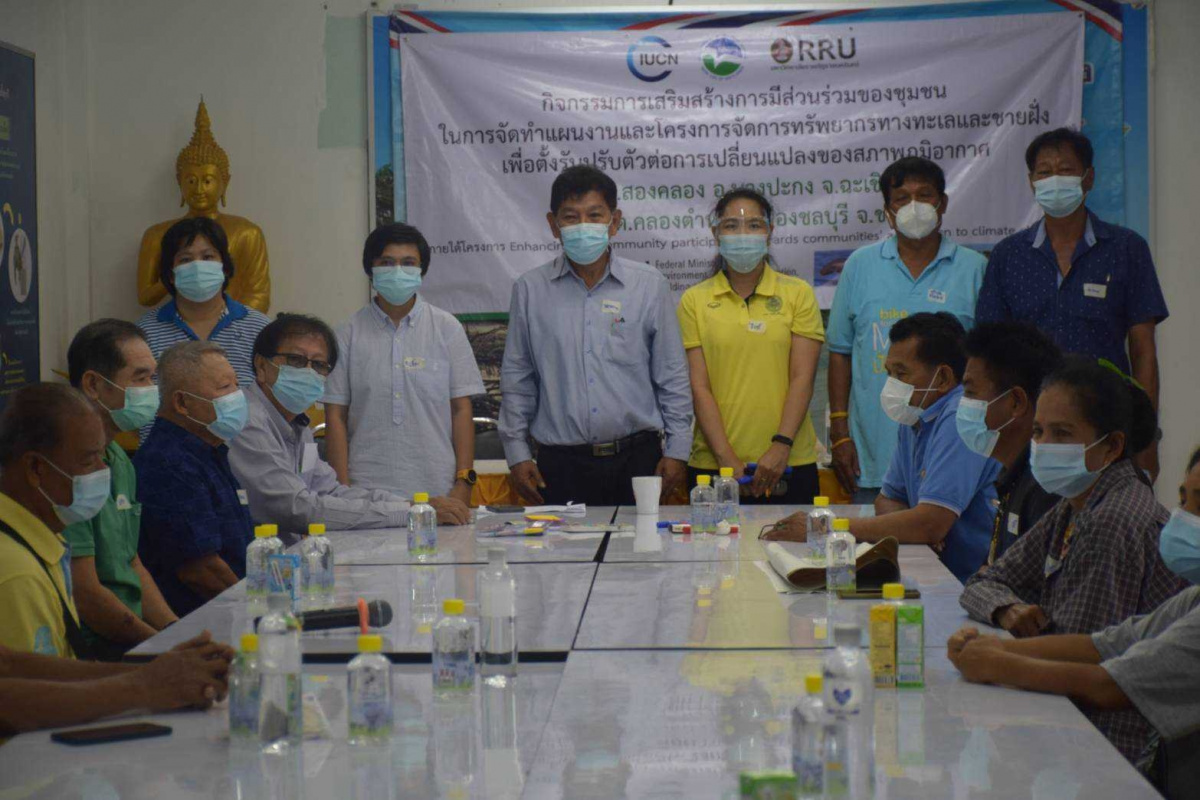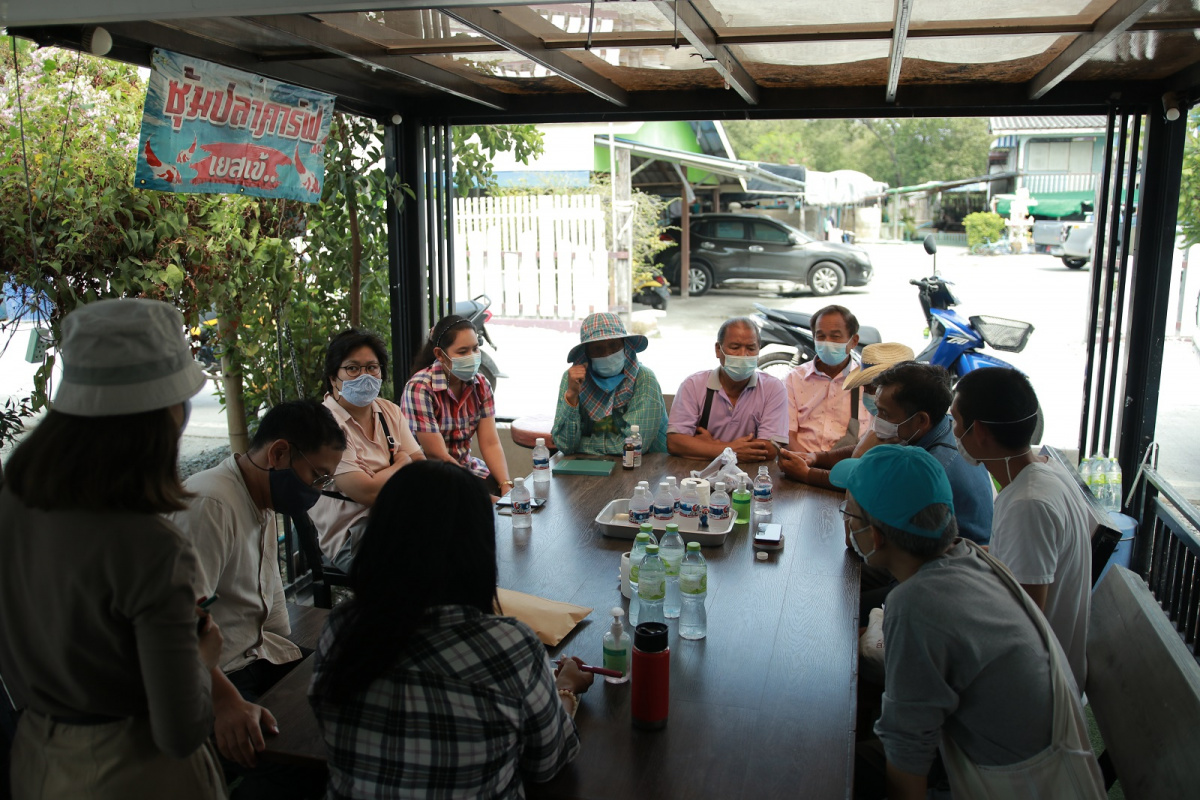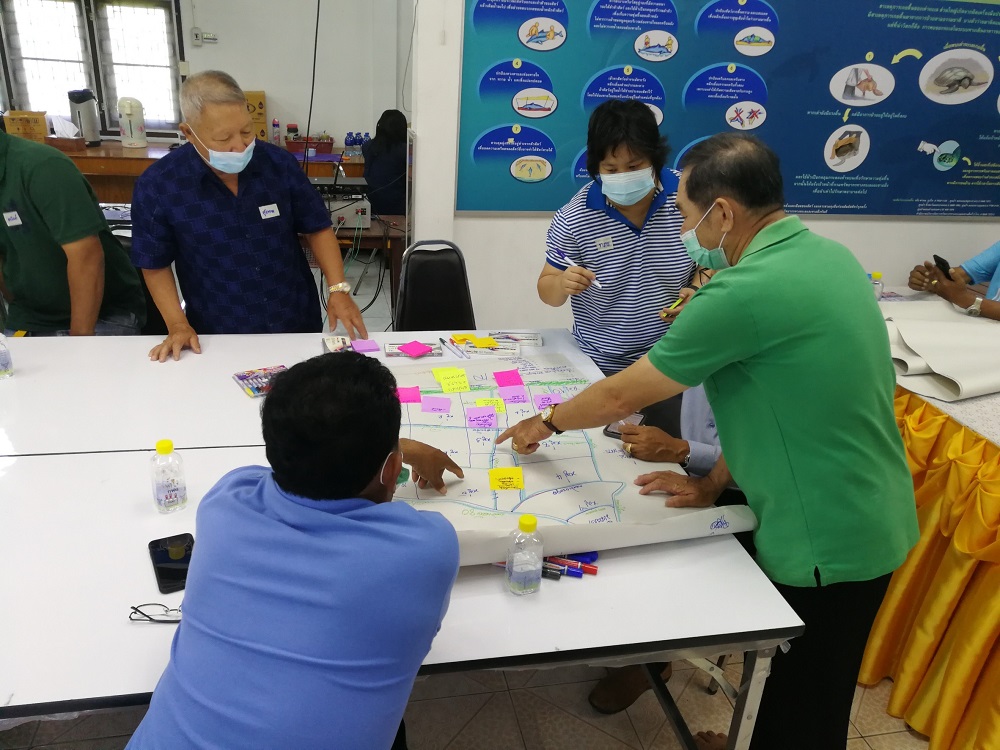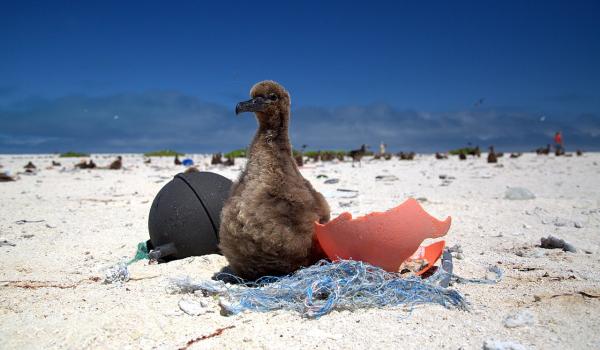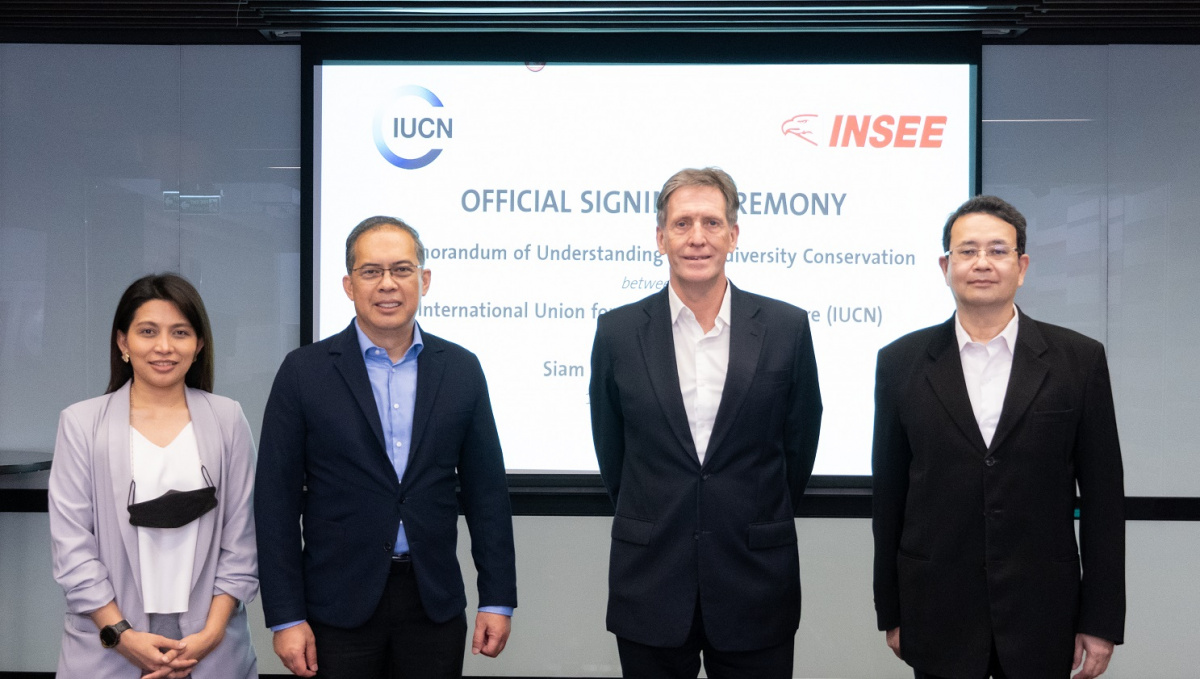Strengthening community networks to address coastal erosion in Bang Pakong River Estuary, Thailand
On 21 May 2021, Rajabhat Rajanagarindra University facilitated a community workshop to address coastal erosion and manage coastal resources in Thailand’s Bang Pakong River Estuary. Over 40 individuals, composed of village leaders and representatives from the Songkhlong Sub-District Administrative Organization participated in the workshop.
During the workshop, the participants provided input on natural resource use in the estuary, local traditions and recent natural disasters. The facilitators used a village map to understand the natural resources and their contributions to local livelihoods. The key results show the importance of the estuary as a cultivation area for aquaculture such as tilapia, sea bass, mussels, clams and oysters.
The participants also developed a community historical timeline, which demonstrated that coastal erosion has impacted prawn farms since 1969. Around 1995, a coastal erosion prevention project installed a seawall, which the community hoped would support mangrove restoration, the results of the project have been mixed, helping the restoration of some mangrove species, such as Avicennia spp., but not others, such as Rhizophora spp. The participants also mentioned that the discharge of industrial wastewater has led to negative impacts on aquaculture farms. Extreme coastal flooding events were also highlighted in the historical timeline.
Workshop participants highlighted the importance of building a community network to solve coastal erosion and coastal resources problems. “Coastal erosion has been an important issue for the last 30 years, and seems to be getting worse from climate change,” said Mr. Charoen Sompong, a village leader from Songkhlong sub-district.
Some local traditions documented during the workshop include the linkage between water and Buddhist culture, and the potential to leverage this linkage to reduce pollution in the estuary. The community also holds an annual “crab wedding” to promote the conservation and breeding of crabs in the estuary.
The workshop was funded by a small grant from IUCN’s Mekong WET project, and built upon the results of the Climate Change Vulnerability Assessment completed for the Bang Pakong River. Future activities to be conducted by Rajabhat Rajanagarindra University under the grant include discussing Ecosystem-based Adaptation measures to address erosion and other threats in the estuary.
The Mekong WET Small Grants fund several wetlands projects in the Indo-Burma region. These initiatives are directly answering specific climate threats to wetland ecosystems, species, and communities using Ecosystem-based Adaptation strategies as the main approach.
About MWET
Funded by the International Climate Initiative (IKI) of the German Federal Ministry for the Environment, Nature Conservation, Building and Nuclear Safety (BMUB), the “Mekong WET: Building Resilience of Wetlands in the Lower Mekong Region” project aims to build climate resilience by harnessing the benefits of wetlands in Cambodia, Lao PDR, Thailand, and Viet Nam.
Mekong WET will help the four countries to address their commitments to the Ramsar Convention, an international treaty for the conservation and sustainable use of wetlands, and to achieve the Aichi Biodiversity Targets.
About IBRRI
The Indo-Burma Ramsar Regional Initiative (IBRRI) was jointly developed by the Ramsar National Focal Points of the five countries (Cambodia, Lao PDR, Myanmar, Thailand, and Viet Nam), and IUCN’s Asia Regional Office, based on specific needs identified in these countries. It was endorsed by the 52nd meeting of the Ramsar Convention Standing Committee in June 2016. The IBRRI aims to support the coordinated implementation of the objectives of the Strategic Plan of the Ramsar Convention. IUCN acts as the Secretariat for the Initiative under the leadership of the Steering Committee, which includes representatives from the five governments and the Ramsar Convention Secretariat as an observer.
